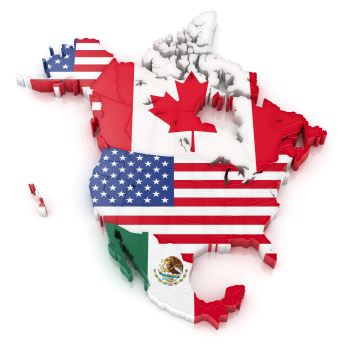
FTZ’ine March 2020
March 3, 2020
FTZ’ine May 2020
May 5, 2020Groundhog Day
It was fun at first. Staying home from work. Staying home from school. Teaching Grandma to Zoom. But now the days are starting to run together for the FTZine staff. No one has to go to work today . . . again. The kids are home from school today . . .again. There’s no toilet paper at the supermarket . . . again.
America now has the dubious distinction of leading the world . . . in COVID-19 cases. It has decimated cities (NYC, NO, SF) and industries (petroleum, cruise lines, airlines, restaurants) with ruthless abandon. International supply chains developed over decades were rapidly outpaced and outflanked by a microscopic virus.
Before you drive your pickup truck to the quarry though, don’t forget the U.S. is going to need some serious economic development work when this is over. We hope everyone will take care of themselves, family and friends over the next few difficult weeks, and keep an eye on what it is going to take to get this country moving again when the coast is clear. For Grantees, this is a great time for community outreach and putting a fine tune to your FTZ marketing – let businesses know you are there and how you can help. Operators, now is the time for cleaning up procedures and administrator training to get ready when the crush of air, ocean, and truck shipments begin. Piano lessons can wait. Be well.
Top Story: FTZ User Abbott Announces 5 Minute COVID-19 Test
Tech Tip
Have you ever noticed that your Zone ID appears differently in different CBP filings? This is especially confusing when the requirements look the same in the CATAIR but seem to be different in the data passed to and from CBP.
The basic formatting of the FTZ ID on the entry summary (7501) and the admission (e214) appear to be the same on the surface. Each indicate the following components to the ID:
But, the entry summary CATAIR includes one small phrase after the Site ID that makes all the difference: “if applicable”. This means that the length of the zone ID on the entry summary can vary between five and seven characters. The zone ID on the e214 is always 7 characters, with “00” inserted in any component that is not applicable.
For a subzone that has no designated sites, the zone ID will appear with 5 characters on the 7501 (0260A) and will end with two zeros on the e214 (0260A00). A GPZ with no subzone will also vary (02610 vs. 0261000).
All of this may change soon. CBP recently published a new draft CATAIR for the e214. In this version, there is an increase in the number of characters in the zone ID from 7 to 9 characters, adding an extra character to the Subzone/GPZ ID portion of the number as well as the Site ID portion. There is no word from CBP if there are to be corresponding changes made to the Entry Summary. This change to the e214, along with other updates, is to be in a release currently in testing and planned to be put into production as early as June 2020. There are a lot of open questions about this new e214 program, so stay tuned to Tech Tips for more updates!


US Land Borders Close to Non-essential Traffic
The U.S. borders with Mexico and Canada were simultaneously closed last month to non-essential travel, including all tourism. The borders remain open for the transportation of goods and travel for work, in order to not further hamper trade and the supply chains between the countries.
COVID Takes Aim At Brexit and USMCA


FTZ Board Activity
- Puma Energy Caribe, LLC received approval for the expansion of subzone 7F in Guaynabo, Puerto Rico. MORE
- Fisher Footwear, LLC received approval for subzone status for its new facility as subzone 44L in Cranbury, New Jersey. MORE
- Flextronics America, LLC received the authorization of production activity for automated data processing machines within FTZ 183 in Austin, Texas. MORE
- SICK Product & Competence Center Americas, LLC submitted a notification of proposed production activity for safety and tracking systems, safety light curtains, and connector assemblies within FTZ 119 in Savage, Minnesota. MORE
- Jefferson County Economic Development Corporation received a grant of authority establishing FTZ 298 under the Alternative Site Framework. The new zone has a service area of Boulder, Clear Creek, Gilpin, and Jefferson County, Colorado. MORE
- Walgreen Co. received approval for subzone status for its new facility as subzone 31D in Mt. Vernon, Illinois. MORE
- Frank's International, LLC submitted a notification of proposed production activity for line pipe with tubular joints within FTZ 124 in New Iberia and Lafayette, Louisiana. MORE
- UniCarriers Americas Corporation submitted a notification of proposed production activity for forklift engines and assemblies within FTZ 176 in Marengo, Illinois. MORE
- Lake Charles LNG Export Company, LLC submitted a notification of proposed production activity for liquified natural gas processing within FTZ 87 in Lake Charles, Louisiana. MORE
- Packard Pipe Terminals, LLC received approval for subzone status for its new facility as subzone 2M in Belle Chasse, Louisiana. MORE
- Volkswagen Group of America Chattanooga Operations, LLC received the authorization of production activity for passenger motor vehicles within FTZ 134 in Chattanooga, Tennessee. MORE
- Offshore Energy Services, Inc. submitted a notification of proposed production activity for line pipe with weld-on housings and connectors within FTZ 124 in Broussard, Louisiana. MORE
- LLFlex, LLC submitted a notification of proposed production activity for aluminum foil paper laminate, foil-backed paperboard, coated paper, coated paperboard, and cable wrap within FTZ 230 in High Point, North Carolina. MORE
- PRO-PIPE USA, LLC submitted a notification of proposed production activity for high-density polyethylene pipe within FTZ 106 in Shawnee, Oklahoma. MORE
- Zoetis, LLC submitted a notification of proposed production activity for pharmaceutical products within FTZ 43 in Kalamazoo, Michigan. MORE
- Port Arthur LNG, LLC submitted a notification of proposed production activity for liquified natural gas processing within FTZ 116 in Port Arthur, Texas. MORE
- Traxys Cometals USA, LLC submitted a notification of proposed production activity for manganese and aluminum alloying agents within FTZ 158 in Burnsville, Mississippi. MORE
- ISK Biosciences Corporation submitted a notification of proposed production activity for agricultural chemicals within FTZ 77 in Memphis, Tennessee. MORE
- Frank's International, LLC received approval for subzone status for its new facility as subzone 124U in New Iberia and Lafayette, Louisiana. MORE
- Tesla, Inc. received authorization of production activity for additional electric passenger vehicle components within FTZ 18 in Fremont, Livermore, and Oakland, California. MORE
Groundhog Day
– It was fun at first. Staying home from work. Staying home from school. Teaching Grandma to Zoom. But now the days are starting to run together for the FTZine staff. No one has to go to work today . . . again. The kids are home from school today . . .again. There’s no toilet paper at the supermarket . . . again.
America now has the dubious distinction of leading the world . . . in COVID-19 cases. It has decimated cities (NYC, NO, SF) and industries (petroleum, cruise lines, airlines, restaurants) with ruthless abandon. International supply chains developed over decades were rapidly outpaced and outflanked by a microscopic virus.
Before you drive your pickup truck to the quarry though, don’t forget the U.S. is going to need some serious economic development work when this is over. We hope everyone will take care of themselves, family and friends over the next few difficult weeks, and keep an eye on what it is going to take to get this country moving again when the coast is clear. For Grantees, this is a great time for community outreach and putting a fine tune to your FTZ marketing – let businesses know you are there and how you can help. Operators, now is the time for cleaning up procedures and administrator training to get ready when the crush of air, ocean, and truck shipments begin. Piano lessons can wait. Be well.

